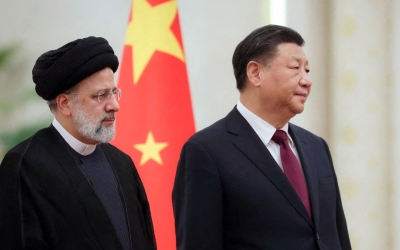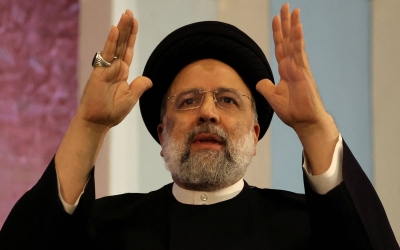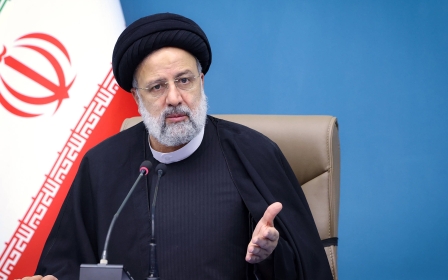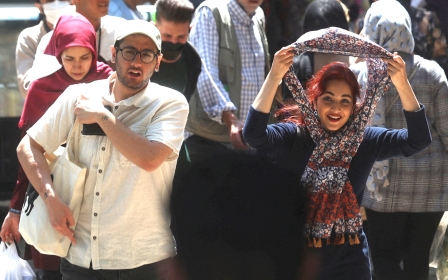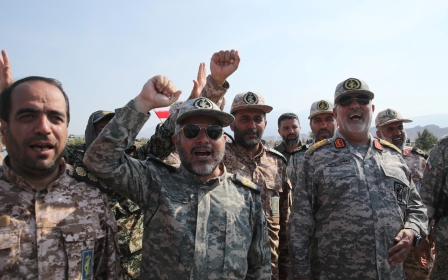Iranian press review: Russia to modernise Iran's outdated oil and gas industry
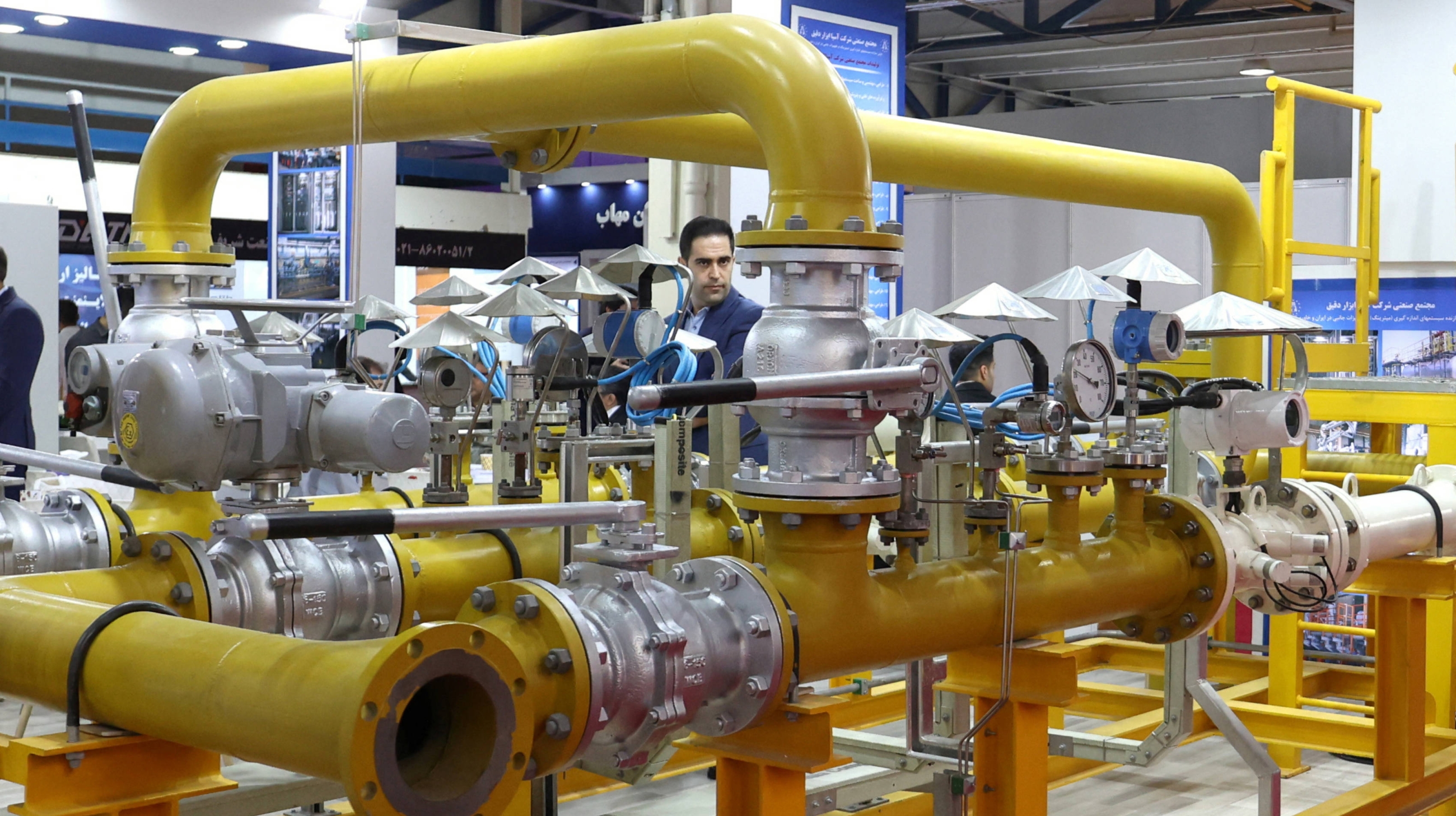
More Russian firms invest in Iran
A delegation of 28 Russian oil, gas and petrochemical companies will visit Iran to increase the cooperation between the two countries and assist Iran by sharing knowledge for improving "the efficiency of the oil, gas, and energy industry", the ISNA news agency reported.
Years of international sanctions on Iran have left its oil and gas industry in dire need of renovation and up-to-date technology.
According to ISNA, Russian firms would participate in Iran's oil fair and present their technology for drilling and maintenance for wells, as well as modern devices used for oil transfer systems and the loading and unloading of petrochemical products.
Following the sanctions Western countries have imposed on Russia due to the war in Ukraine, Tehran and Moscow have rapidly increased their collaboration in industrial, economic and military fields.
New MEE newsletter: Jerusalem Dispatch
Sign up to get the latest insights and analysis on Israel-Palestine, alongside Turkey Unpacked and other MEE newsletters
Last year, Iranian officials announced that Russian oil and gas companies would increase their investment in Iran from $4bn to $40bn.
Shah's intelligence informant dies in Colombia
The death of Amir Hossein Fetanat, an informant who collaborated with Savak, the infamous intelligence service under the last shah of Iran, brought back memories of the execution of a journalist and poet, Khosrow Golsorkhi, before the 1979 revolution.
Fetanat died on 6 May in Colombia, but the news of his death only reached Iran days later. Several outlets used the occasion to recall leftist Iranian journalist and poet Khosrow Golsorkhi who was killed by a firing squad in 1974, along with his comrade Keramat Daneshian, for allegedly plotting to kidnap crown prince Reza Pahlavi.
Fetanat's death has attracted attention in Iran because Golsorkhi was killed due to the informant's collaboration with the intelligence service.
Some Iranian outlets reported Fetanat's death under the headlines such as "The death of Judas, the traitor" and "He wanted to be like Che Guevara, but became his killer".
"What life has in store can be so strange. Fetanat died on the same day as Gary Prado Salmon, the Bolivian officer who arrested Che Guevara," wrote Khabar Online columnist Zahra Ali Akbari.
The authorities, both under the shah and the Islamic Republic, imposed informal bans on praising Golsorkhi because of his leftist ideology; however, he is highly respected among intellectuals and opposition activists.
Fetanat began collaborating with the Savak when he served a two-year prison sentence for his political activism.
After prison, he remained in contact with members of an intellectual circle that supported the guerrilla movement in Iran. He betrayed them in 1974.
MP who revealed SUV bribery charged
Ahmad Alireza Beigi, a member of parliament from the city of Tabriz, was charged with "making baseless claims" about a corruption case related to bribing legislators with SUV cars, Iran's judiciary official news agency Mizan reported.
On Tuesday, Mizan wrote that Alireza Beigi offered his last defence in court and was released on bail, without providing further details on his case.
Alireza Beigi was the first legislator who revealed the corruption case, dubbed "SUV-gate" in Iran, in which the country's Ministry of Industry, Mines and Business had allegedly offered 75 SUV cars to lawmakers to save a former minister from impeachment.
It was later revealed that high-ranking officials in several ministries, state organisations and the presidential administration were also among those who had received the SUVs.
Ehsan Arkani, a legislator from the city of Neyshabur and an investigator appointed by President Ebrahim Raisi, had also confirmed that the SUV cars were delivered to officials.
Shortage of airline tickets
A few weeks after testing a domestically built aeroplane engine in the presence of President Ebrahim Raisi, local media reported a severe shortage of plane tickets and a 100 percent increase in the prices for some domestic flights due to an ageing fleet and a lack of spare parts and engines.
Since Raisi took office in 2021, he kicked off a propaganda campaign about his cabinet's national project to manufacture passenger planes despite international sanctions.
Iran's aviation industry has been under sanctions since the 1979 revolution.
On Saturday, Iran's civil aviation organisation said in a statement that the country needed at least 550 planes to meet domestic air travel demand, while there were only 170 functioning planes in the country's fleet.
The statement added that "low ticket prices" were another reason for the high demand from Iranians travelling domestically by plane. According to the civil aviation organisation, the prices of domestic flights have remained the same during the past two years, despite soaring inflation.
However, the Tasnim news agency, one of Raisi's leading supporters, rejected the claims by the government aviation organisation and wrote that ticket prices increased last year between five and 30 percent on different routes.
*Iranian press review is a digest of news reports not independently verified as accurate by Middle East Eye.
Middle East Eye delivers independent and unrivalled coverage and analysis of the Middle East, North Africa and beyond. To learn more about republishing this content and the associated fees, please fill out this form. More about MEE can be found here.


